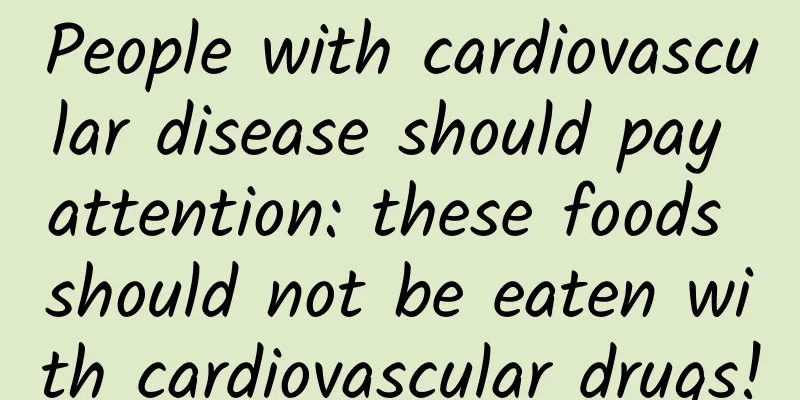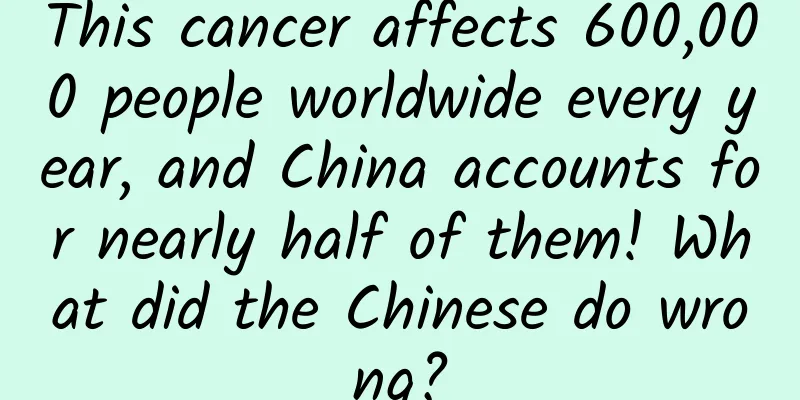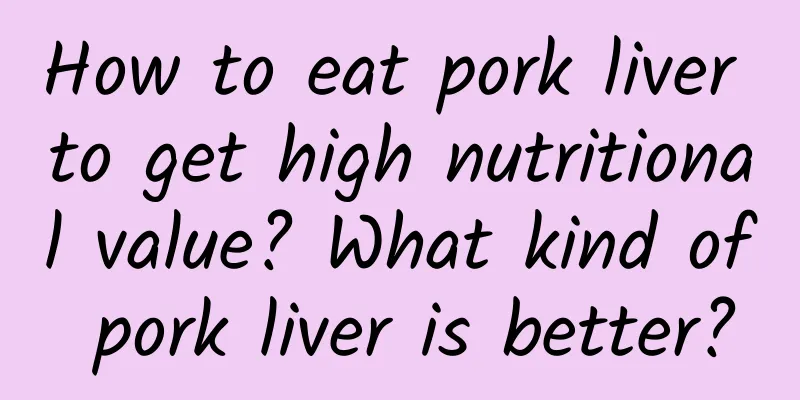People with cardiovascular disease should pay attention: these foods should not be eaten with cardiovascular drugs!

|
There is a "food and drug incompatibility theory" in traditional Chinese medicine, and there is also one in Western medicine. Friends who have visited the hospital for treatment and bought medicine must have been told by the doctor not to eat certain foods while taking medicine. This is actually because food will have some effect on the medicine, thereby affecting the absorption and metabolism of the medicine. If food affects cardiovascular drugs, the situation is even more serious. This is because many cardiovascular drugs have a narrow therapeutic window and large adverse reactions. Once the effect of food on them is ignored, it is likely to lead to extremely serious consequences. Therefore, it is particularly important to understand the impact of food on cardiovascular drugs. So what are the drugs that affect the cardiovascular system? Anti-atherosclerotic drugs are a common type of drug used in cardiovascular diseases. According to an article published in the Chinese Journal of New Drugs and Clinical Practice, the most researched topic in this category is the effect of grapefruit juice on statins [1]. The article points out that even drinking a small glass of grapefruit juice every day will greatly increase the blood concentration of simvastatin and its active acid [2]. High concentrations of these drugs are prone to cause serious adverse reactions such as myalgia, myositis, rhabdomyolysis, and acute renal failure, so researchers recommend that grapefruit juice should be avoided as much as possible when used in combination with statins. However, we need to remind everyone that the researchers also emphasized that when taking drugs such as clofibrate, Xinnaokang, and fenofibrate, you should eat more foods cooked with vegetable oils, because the unsaturated fatty acids contained in vegetable oils can promote the metabolism of cholesterol in the body and increase the efficacy of lipid-lowering drugs. Calcium antagonists, such as diazepam, are also commonly used drugs for cardiovascular diseases. In recent years, more research has been done on the effects of plant extracts on the effects of calcium antagonists. Compared with taking 10 mg of nifedipine alone, the average pharmacokinetic parameters of nifedipine and its main metabolite dehydro-nifedipine did not change significantly in 8 healthy volunteers who took 240 mg of ginkgo leaf juice and 10 mg of nifedipine orally for two cycles. However, the peak concentration of nifedipine doubled in 2 volunteers, and they also experienced adverse reactions such as facial flushing, dizziness, vertigo, and increased heart rate. This suggests that patients who usually take these drugs should try not to take ginkgo leaf juice orally, otherwise it will affect the efficacy of the drugs. Warfarin is a commonly used oral anticoagulant. Due to its narrow therapeutic window and high protein binding rate, the anticoagulant effect of warfarin is easily affected by food. Foods that affect this type of drug are mainly foods rich in vitamin K, such as cabbage, spinach, lettuce, etc. These foods can offset the effect of warfarin on the synthesis of coagulation factors determined by vitamin K, thereby reducing its anticoagulant effect [3]. The Chinese expert consensus on warfarin anticoagulant therapy also mentioned that dietary vitamin K intake is one of the main influencing factors for patients taking warfarin for a long time. Patients should be advised to maintain a relatively stable vitamin K intake, and monitoring should be strengthened when significant changes occur. It is worth noting that in addition to foods rich in vitamin K, high-protein, low-sugar diets, soy milk, cranberry juice, etc. can also reduce the anticoagulant effect of warfarin. Although for most people, there will generally not be major changes in eating habits while taking medication, if there is a big change in eating habits for some reason, this is likely to affect the metabolism of the drug and further affect our health. Therefore, it is very necessary for cardiovascular patients to learn more about the impact of food on drugs. References: [1]. Yi Dan, Wu Cuifang, Liu Shikun. Effects of food on the effects of drugs on the cardiovascular system[J]. Chinese Journal of New Drugs and Clinical Practice, 2006, 025(006):462-465. [2].Kantola T, Kivist? KT, Neuvonen PJ. Grapefruit juice increases greatly serum concentrations of lovastatin and lovastatin acid.[J]. Clinical Pharmacology & Therapeutics, 1998, 63(4):397-402. [3].Holbrook, Anne M. Systematic Overview of Warfarin and Its Drug and Food Interactions[J]. Archives of Internal Medicine, 2005, 165(10):1095. |
<<: What is the effect of eating pig's trotters? How to make pig's trotters delicious
>>: Several issues on allergic rhinitis in children
Recommend
What causes dizziness when menstruation is delayed?
For pregnant women who have had sexual life, when...
I got pregnant in the second month after the angiography.
Fallopian tube blockage is a key factor leading t...
What are the natural and fast ways to enlarge breasts?
Nowadays, it’s not about who has the best father ...
Fetal heart rate in late pregnancy: 120
In the later stages of pregnancy, you need to che...
How to read the report of Down syndrome screening
What do AFP and HCG mean? What do OD value and MO...
eMarketer: The number of Instagram users in Western Europe will grow 17.0% in 2020
The number of monthly Instagram users in Western ...
When is the best time to have an abortion?
Abortion is a method of terminating pregnancy whe...
Early symptoms of gastritis in women
What are the typical symptoms of stomach disease?...
How to use sanitary napkins correctly
Many women have misunderstandings when using sani...
How many days after menstruation does a woman ovulate?
There are many women who want to have their own c...
What are the effects and benefits of eating purple onions raw? How to eat onions
Onions have high nutritional value and are rich i...
The reason why my girlfriend's period was delayed by 10 days
We all know that women's menstruation has a c...
When can I stop taking pregnancy-preserving medicine?
Some young female friends are pregnant for the fi...
What is the cause of thick endometrium and less menstrual flow?
In daily life, many women often have problems wit...





![[Anatomy of Eating] Eat pork belly like this and you will get thinner the more you eat](/upload/images/67f18c9642db0.webp)



